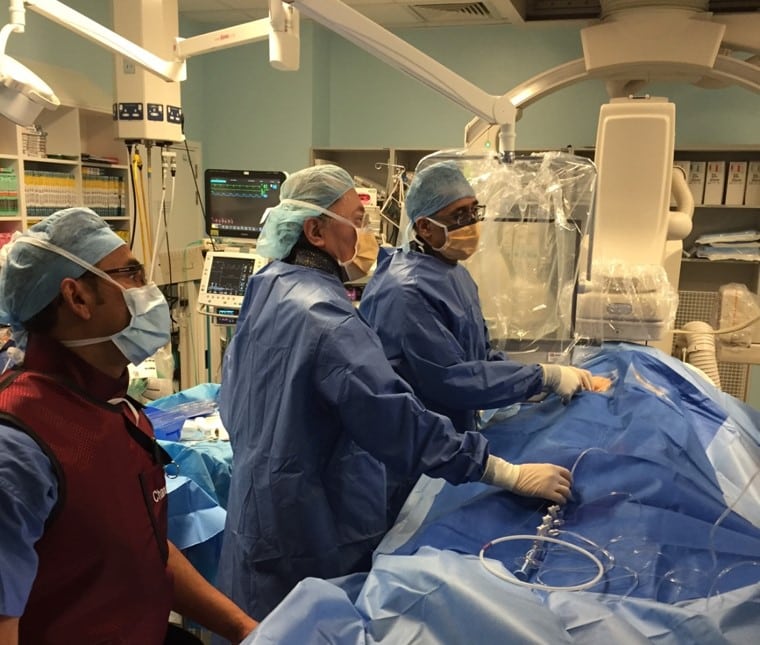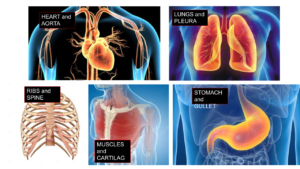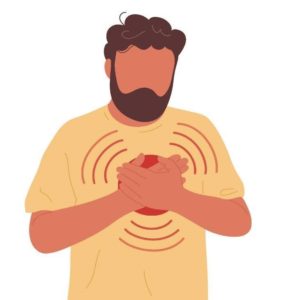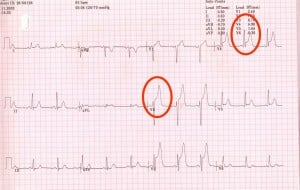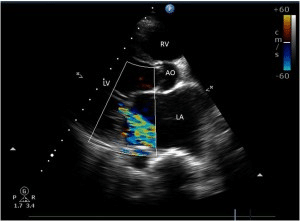Chest Pain Causes
Chest pain can have many causes, and not all are serious. However, chest pain due to angina pain, often linked to heart issues like coronary artery disease, needs attention. Coronary artery disease happens when fatty deposits narrow the blood vessels that supply the heart, similar to limescale blocking a pipe. This condition, also known as “hardening of the arteries,” is a leading cause of heart problems, killing 1 in 5 of all men and 1 in 6 of all women.
Other common chest pain causes include:
- Acid indigestion- so from the stomach
- Muscle strain- so from the muscles of the chest wall
- Pain from the spine that feels like it’s in the chest.
- Lung pains- chest infections and blood clots could cause pain
Cardiac Chest Pain (Angina) Symptoms
Chest pain can feel different depending on the cause. It might be sharp, dull, burning, or feel like pressure or squeezing. Knowing the symptoms of heart-related chest pain can help you decide when to seek medical help.
Specific Angina Symptoms:
- Shortness of breath
- Nausea or feeling sick
- Dizziness
- Pain spreading to the arms, neck, jaw, or back
These angina symptoms often happen during physical activity or stress, and angina pain may improve with rest or medication.
Although central chest tightness is the classical symptom, may people describe pain differently- It might “Only” be breathlessness- or pain in the neck, stomach or arm- but could still be angina.
Chest Pain Diagnosis and Test for Angina
Investigating chest pain can be complex and requires a detailed approach to rule out cardiac causes, particularly angina. The process typically begins with carefully reviewing your medical history, a physical examination, and diagnostic tests. These tests help identify whether chest pain or angina pain is related to heart problems or another cause.
Standard tests for Chest Pain might include:
- Medical History and Physical Examination: Your doctor will assess your symptoms, family history, and overall health to identify potential heart risks.
- Private Electrocardiogram (ECG): This initial test records the heart’s electrical activity to detect abnormalities. However, it may appear normal even in cases of angina.
Below is an example of an ECG of a heart attack. The changes in the red circles mean emergency angioplasty is needed.
- Private Echocardiogram: This ultrasound test evaluates the heart’s structure and function, checking for any issues with the heart valves or muscles.
Below, you can find an image showing a transthoracic echocardiography (ultrasound) scan:
Further tests for Angina Pain investigation:
- Private Exercise Treadmill/Bike Test (ETT): This test measures how your heart responds to physical stress. It helps determine whether your chest pain is related to reduced blood flow to the heart during exercise.
- Private CT Coronary Angiogram: A detailed, non-invasive scan that visualises the coronary arteries to detect blockages or narrowing.
- Private Stress Echocardiogram (DSE) or Stress MRI: For individuals who cannot perform physical exercise due to conditions like arthritis, these tests mimic exercise effects on the heart using medications to stress the heart.
Depending on the findings, treatments like a Private Coronary Angioplasty (PCI) or Private Coronary Bypass Surgery (CABG) may be recommended.
Each of these tests helps build a comprehensive picture of your heart health and guides the next steps in managing your chest pain or angina. Early diagnosis and appropriate testing are essential to determine the condition and start the proper treatment on time.
Chest Pain and Angina Treatment Guidelines
Treatment for chest pain depends on the cause but focuses on reducing symptoms and preventing complications. General approaches include medications, lifestyle changes like exercise and diet, and anxiety management for stress-related pain.
Angina Treatment Guidelines:
- GTN Spray: Used to quickly relieve chest pain by dilating blood vessels and improving blood flow to the heart.
- Aspirin: Helps to thin the blood and reduce the risk of blood clots, which can further block narrowed arteries.
- Statins: They are cholesterol-lowering medications that reduce the risk of heart attack or stroke by preventing further plaque buildup in the arteries.
- Beta-blockers, Calcium Channel Blockers, and Other Private Medications: These medications help manage angina symptoms by lowering heart rate, reducing blood pressure, and improving blood flow to the heart.
Ready to Book Your Consultation?
Whether you suspect you may have angina or have a diagnosis but need expert advice, book your consultation with Dr Malik today. He’ll be more than happy to see you.
Why Choose Dr. Iqbal Malik at London Cardiovascular Clinic?
- Experience: Dr. Malik is a highly experienced cardiologist who offers expert care in diagnosing and treating chest pain.
- Personalised Care: Every patient gets individual attention with clear advice on managing their condition.
- Advanced Testing: Dr. Malik uses the latest technology to accurately diagnose chest pain and angina.
How Much Does Chest Pain and Angina Investigation Cost?
Insurance
Most private medical insurance policies cover chest pain investigations. However, to speed things up, please contact your insurance company before your appointment to obtain your pre-authorisation code.
Self-funding
Our price list is available on request and is displayed in the waiting area of our London Cardiovascular Clinic. Please contact our office for an estimate of the costs.

